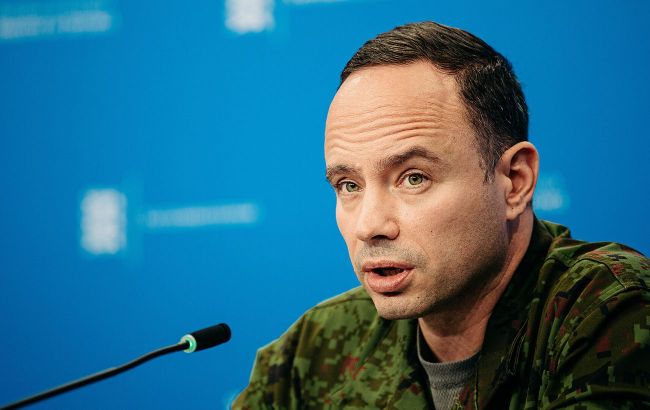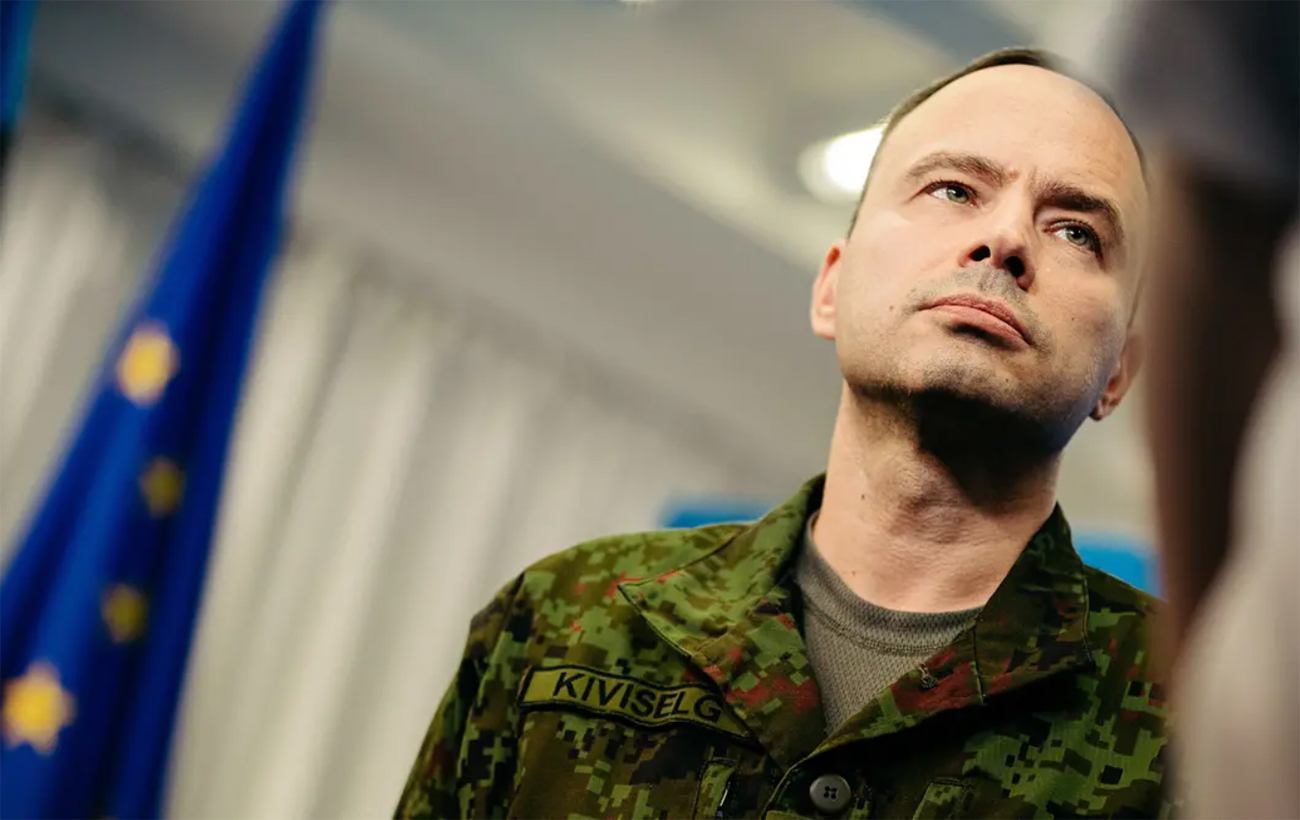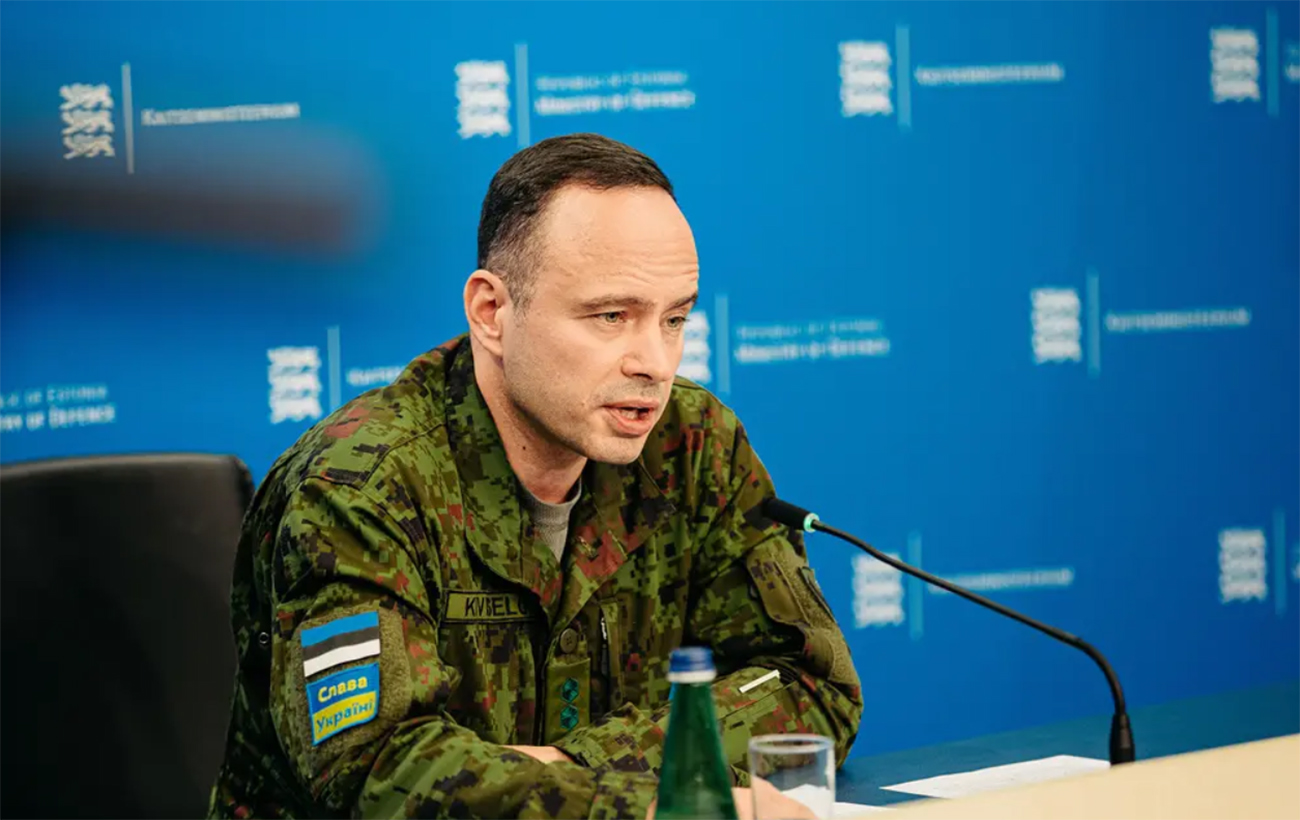Ants Kiviselg, Estonian intelligence head: Ukrainians face tough winter as Russia continues attacks
 Photo: Ants Kiviselg (Err.ee)
Photo: Ants Kiviselg (Err.ee)
Estonia regularly and consistently assists Ukraine with weapons, finance, and important information. Ants Kiviselg, the head of Estonian intelligence, revealed in an interview with RBC-Ukraine about Russia's weaponry stockpiles, the Kremlin's global plans, and the potential for Russian unrest.
The Baltic countries were among the first to provide all possible support and assistance to Ukraine since Russia started a full-scale war in Ukraine. In Estonian political circles, it could be explained simply: they share borders with Russia, and they understand the potential threats in the future.
Estonian intelligence has been one of the first to regularly provide critical information for Ukraine. Ants Kiviselg, the head of Estonian intelligence, readily comments on the situation on the frontlines and various Russian plans. In an interview with RBC-Ukraine, he discussed the weaponry the Ukrainian Armed Forces need, the situation inside Russia, and the global perspective of Russian President Vladimir Putin's plans.
- Our counteroffensive has been ongoing for almost half a year. What predictions can you provide regarding the main battles on the front and the counteroffensive as a whole?
- I'm not in a position to discuss Ukrainian actions. I can say that what I see is a very difficult situation. Russia had a lot of time to establish its defensive lines, and in some territories, Russia has an advantage in the air. So, it is challenging for Ukraine to liberate Crimea and cut off the Russians from certain territories.
- What do we need more, in your opinion? Artillery, ammunition, or perhaps fighter aircraft?
- Everything you mentioned is probably essential. It would help if you had air superiority and precision weapons. But I see that the Ukrainian forces are doing a great job shaping the battlefield. The Ukrainian military is penetrating deep into the enemy's rear, and putting pressure on Russian logistics. And we know that, given the amount of artillery the Russians use, they need good logistics. The Ukrainian Armed Forces are doing an excellent job.
- Does Russia want to reach the borders of the Luhansk and Donetsk regions, or will they not stop there?
- I think the Russians are more opportunistic. If there is a chance to capture more territory, they will take it. But for now, we see that the Russians are concentrating a large number of their forces in the Luhansk and Donetsk regions. I would also like to point out that the winter will be tough for Ukrainians. Russia will continue to attack civilian and critical infrastructure to deprive Ukrainians of electricity.
- Russian spies. Has their number and activity increased in Estonia and other countries?
- Yes, since the start of the full-scale invasion, we have deported many Russians from Estonia, mostly those who worked in the Russian embassy. A similar situation occurred after the Skripal poisoning in the UK (the poisoning of former GRU employee Sergei Skripal in Salisbury in 2018 - Ed.).
We believe that the number of Russian intelligence agents in other countries is decreasing. But they are certainly trying to find other ways to obtain information. This year in Poland, 14 spies were arrested in the spring, and their task was to monitor the amount of weaponry being supplied from Poland to Ukraine.

Ants Kiviselg (Photo: Err.ee)
We see their activity in Estonia as well. The Russian side is very interested in finding out how we are helping Ukraine, what kind of weapons and ammunition we are providing, how we train your military, and what NATO military personnel are doing here.
- Tell us about the cooperation between Ukrainian and Estonian intelligence - what can you share today? Are there any examples that can be discussed?
- We certainly have cooperation, and we try to support you in any way we can - with any necessary information. Both sides benefit from this. We understand that you are at war, and we try to support you as much as possible. I can't provide specific examples because the situation can change, as you understand. But believe me, we are doing everything we can to help you.
- How much weaponry does Russia currently have?
- Before the full-scale invasion, they had 9,000 tanks and 36,000 armored personnel carriers. Even if you consider that their equipment is outdated and they can only make one out of three units, it's still a huge number - 3,000 tanks and 12,000 armored personnel carriers. Additionally, they have significant stockpiles of ammunition - they can produce around 1.5 million rounds per year today. They could produce this amount before the war. Currently, they have launched almost continuous production at their factories, so they can make even more shells. But this doesn't include ballistic missiles, for example. These are so-called "dumb shells." They can't manufacture ballistic missiles in such quantities. But there are challenges with their artillery systems. They try to restore them, but it's a challenge for Russia.
- What about fighter aircraft? We are trying to destroy them.
- We see that Russia has lost very few fighter aircraft. Their air forces still have many capabilities, and they are effective against Ukrainian forces.
- How do other countries assist Russia? We know that Iran assists them, but less than a month ago, there were questions about Iranian ballistic missiles. Did Russia acquire them?
- Russia's capabilities are somewhat depleted. They are trying to find different ways to acquire more weapons. North Korea is one of their "colleagues," but we currently have no information that they received ballistic missiles.
- Are you talking about Fateh and Zolfaghar?
- Yes, Russia did not receive either of them or the ones they requested.
- Do other countries assist Russia? We know that China supplies drones to Russia, and we are aware of the dialogue between Russia and North Korea, but it is not yet clear what North Korea can help Russia with.
- I can only emphasize what you said - North Korea provides some supplies to Russia, primarily artillery shells. As for China, we currently have no information about it.
- They supply drones to Russia; at least there are many Chinese Mavic drones in Russia.
- Yes, but there is equipment that can be bought not only from the manufacturer. Russia is trying with all its might to circumvent sanctions. Given the number of countries Russia has worked with, it is impossible to completely close all the supply routes for Russian military equipment today.

Ants Kiviselg (Photo: Err.ee)
- What can you tell about the situation in Russia, and whether there could be uprisings among both the population and the elites?
- Certainly, there are people in Russia, both in population and among the elites, who are not very satisfied with what's happening. And the Prigozhin's March showed that unexpected things can happen in Russia. Of course, anything is possible, but unfortunately, I don't see the situation changing right now. But I would be happy to be wrong.
I think the Putin regime has done everything to make those who are dissatisfied with it leave the country. Those who had the potential to bring in new technologies and strategies, people with potential, have left Russia. So, today, there is no opposition in Russia.
- What do you think about Russia's plans? Do they want to destroy Ukraine and establish a new world order? Is that their main goal?
- I think so. What Putin said in December 2021 is what he truly wants (referring to a speech in which Putin issued an ultimatum to the West and expressed concerns about NATO supplying weapons to Ukraine - Ed.). He wants NATO to stop expanding and roll back to its 1997 boundaries. We don't see any change in his plans. So, yes.
I believe he wants to establish a new security architecture in Europe. Russia wants to expand its sphere of influence and increase it. In Russia's view, smaller countries should not have their own will, and they should not have the right to say what they want. This goes against Western values, so we resist it. There is no scenario in which we would want to live like Russia.
- A few days ago, there was information about Putin's supposed death. Do you have any information on this?
- No, we have no information about that.
This material was prepared within the framework of a press tour organized with the financial support of the European Union as part of the EU4DigitalUA project, implemented by the e-Governance Academy (Estonia).

